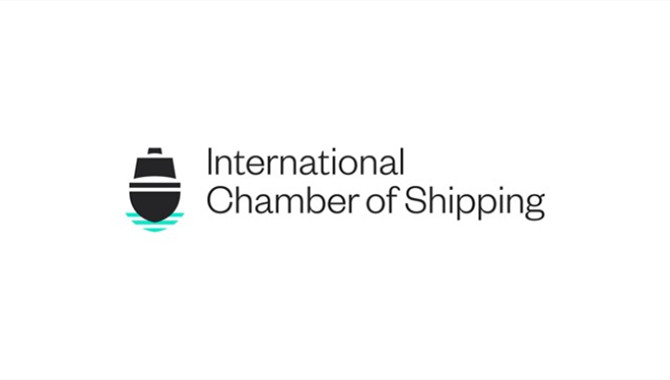
On World Maritime Day Guy Platten, the Secretary General of the International Chamber of Shipping (ICS), stated that the number of seafarers affected by the ongoing crew change crisis could soon reach one million, with major consequences for seafarer wellbeing and global trade. Mr Platten represents 80% of the world merchant fleet.
The comments were made at the 75th UN General Assembly High-Level Side Event on maritime crew changes, during the opening week of the UN General Assembly. The Webinar was hosted by the International Maritime Organization (IMO), the International Labour Organization (ILO) and the United Nations Global Compact (UNGC), in collaboration with ICS and the International Transport Workers' Federation (ITF). The international attendees reflects the fact that this crisis can only be solved through multilateral cooperation, something which is yet to occur.
As remarked in Mr Platten’s address, ICS estimates that there are 400,000 seafarers stranded at sea with a further 400,000 ashore waiting to relieve them, often waiting with little or no pay. If the crisis continues, he predicted that one million seafarers could be adversely affected in the coming months.
COVID-19 related travel restrictions have limited the global shipping industry's ability to rotate ships' crew. Yet it is the continued failure of governments to recognise seafarers as ‘key workers’ which has forced seafarers to overrun their contracts, with some reportedly having spent over 17 months onboard vessels.
During his address, Mr Platten said:
“Secretary-General, Your Excellencies, Ladies and Gentlemen,
Introduction
“On this World Maritime Day and on behalf of the global shipping industry, which we represent, we heard with thanks the words of UN Secretary General Antonio Guterres and the heartfelt testimony of Captain Marzougli. We are grateful for this initiative by the UN Global Compact, International Maritime Organisation and International Labour Organisation along with the participation of key Governments today to provide focus and leadership on this vital issue. An issue that if not resolved has the potential to disrupt supply chains and increase costs for all countries at a time when they can least afford it. Shipping transports 7 trillion dollars’ worth of cargo each year. Without resolution we could start to see a logjam which will impact each and every country in their ability to trade globally. The shipping industry is very pragmatic, and we are adept at finding solutions however this is one issue we absolutely cannot resolve without the help of Governments.
“The humanitarian crisis that Mr Cotton outlined is very real. We as employers have been doing all we can, often going to extraordinary efforts to undertake crew changes where possible and diverting ships thousands of miles to enable changes to take place, but it is not enough and seafarers cannot extend their tours of duty indefinitely - the situation is unsustainable and at breaking point.
Impact of COVID-19 on Shipping
“The COVID-19 pandemic has put an extraordinary challenge before the world and its effects and impacts are being felt and seen everywhere. Quite evidently, the pandemic is already having significant impacts on our industry:
It has shown the vital importance of maritime transport as it supports the maintenance of global supply chains and carries the essential commodities, energy and supplies, including medicines.
It has also shown the vital role that seafarers play. They are on the frontline; they are the heroes of world trade; they are undoubtedly global key workers.
The ongoing crew change crisis
“However, seafarers need the help of governments and the international community. We remain in a situation where seafarers are still on board many months over the end of their original service periods, with no real end to their plight or the resolution of the crew change crisis in sight due to ongoing travel and other restrictions imposed by governments. At present we estimate that 400,000 seafarers are now well beyond their original contracts with a further 400,000 ashore ready to relieve them, often waiting with little or no pay. If this continues, we could well see a million seafarers adversely affected in the coming months. This is unsustainable
“We know by you being here today that you understand the issue however the main obstacle to resolving this crisis is that many border protection and health authorities still lack understanding of the essential role of seafarers in the flow of global trade. The evidence is clear, the risk presented by cargo ships and crew travel is relatively low, especially given the health protection measures being taken by our industry. We have no wish whatsoever to bring infection on board our ships – not only is that disastrous for the crew on board but it also costs business.
The need for Governments to act now
“In contrast the risks presented, by further inaction, to the resilience of global supply chains is incredibly high. This is the message that we really need you all to take away today. The time to act is now.
“There is a critical need to address the many restrictions and administrative problems that continue to prevent the conduct of crew changes. Red tape and bureaucracy must not be allowed to trap our seafarers or lead to economic problems in countries. The industry stands ready to support all efforts to work on rapid implementation of programmes that will facilitate safe crew change, which will benefit all.
“The seafarers that serve us deserve nothing less.”
The opinions expressed herein are the author's and not necessarily those of The Xinde Marine News.
Please Contact Us at:
media@xindemarine.com


 Baltic Exchange launches new Fuel Equivalence Conve
Baltic Exchange launches new Fuel Equivalence Conve  21 Consecutive Years of QUALSHIP 21 Recognition for
21 Consecutive Years of QUALSHIP 21 Recognition for  MPA and Wärtsilä Renew Partnership to Drive Marit
MPA and Wärtsilä Renew Partnership to Drive Marit  MPA and Dalian Maritime University Renew Partnershi
MPA and Dalian Maritime University Renew Partnershi  PSA INTERNATIONAL, DNV AND PACIFIC INTERNATIONAL LI
PSA INTERNATIONAL, DNV AND PACIFIC INTERNATIONAL LI  INTERCARGO Reaffirms Call for Simplicity as IMO Cli
INTERCARGO Reaffirms Call for Simplicity as IMO Cli